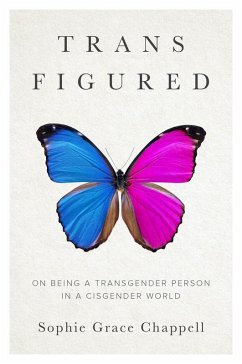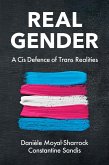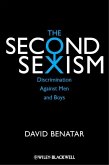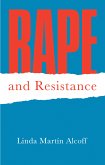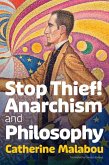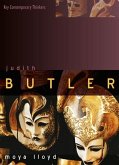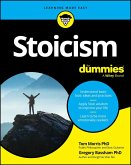'I was four and three-quarters when I asked my mother if, from now on, I could please go to school as a girl instead of as a boy ...'
In this extraordinary new book, renowned philosopher Sophie Grace Chappell combines personal memoir, philosophical reflection, open letters, science fiction writing, and poetry to help us all figure out transgender.
What is it really like to be transgender?
How can we as a society do better to accept the reality of trans lives and to welcome and include trans adults, trans children, and trans families?
How can trans people thrive in a cisgendered world?
For too long now, clouds of myth, misinformation, alarmism, and wrong-headed ideology have masked the reality of trans people's lives. By answering questions like these, this book blows away the clouds and gives us the truth instead.
Rich, informative, and deeply moving, Trans Figured will be widely read and celebrated for years to come.
In this extraordinary new book, renowned philosopher Sophie Grace Chappell combines personal memoir, philosophical reflection, open letters, science fiction writing, and poetry to help us all figure out transgender.
What is it really like to be transgender?
How can we as a society do better to accept the reality of trans lives and to welcome and include trans adults, trans children, and trans families?
How can trans people thrive in a cisgendered world?
For too long now, clouds of myth, misinformation, alarmism, and wrong-headed ideology have masked the reality of trans people's lives. By answering questions like these, this book blows away the clouds and gives us the truth instead.
Rich, informative, and deeply moving, Trans Figured will be widely read and celebrated for years to come.
Dieser Download kann aus rechtlichen Gründen nur mit Rechnungsadresse in D ausgeliefert werden.
'Public controversy about the status of people who have changed their gender identification has been mostly characterised by confusion and verbal violence. This book, by contrast, is a model of what a serious philosopher can bring to the discussion - and also of how to philosophise about moral questions in general. Clear, witty, moving, realistic, and patient, it is a profoundly welcome contribution, urging us to beware of distorted generalisations and to listen to the arguments and the narratives of those most directly affected by the debate.'
Rowan Williams, theologian and former Archbishop of Canterbury
'A challenging and thought-provoking book by an internationally recognised philosopher who is herself a trans woman. All too often, society's conversations about transgender people have left out and ignored trans people themselves. It's time for the game to change - and this book is a game-changer.'
Peter Tatchell, human rights campaigner
'With analytic clarity and personal transparency, Chappell invites her readers to join a pressing philosophical conversation about the costs and contradictions of anti-trans rhetoric, and what transgender experience can teach us all about being human.'
Robin Dembroff, Yale University
'In this intimate philosophical memoir of trans experience, Sophie Grace Chappell shares both the joys and immense obstacles put in the way of her simply existing. One of her earliest memories is, aged four, asking a loving but censoring parent if she could wear girls' clothes to school. The answer received that day was unequivocal and representative: "You can be whoever you want to be. Just not a girl". Her future, ultimately, would tell another story. A story of personal ontological expression, of faith, of mountains, and of philosophy.'
Miranda Fricker, New York University
Rowan Williams, theologian and former Archbishop of Canterbury
'A challenging and thought-provoking book by an internationally recognised philosopher who is herself a trans woman. All too often, society's conversations about transgender people have left out and ignored trans people themselves. It's time for the game to change - and this book is a game-changer.'
Peter Tatchell, human rights campaigner
'With analytic clarity and personal transparency, Chappell invites her readers to join a pressing philosophical conversation about the costs and contradictions of anti-trans rhetoric, and what transgender experience can teach us all about being human.'
Robin Dembroff, Yale University
'In this intimate philosophical memoir of trans experience, Sophie Grace Chappell shares both the joys and immense obstacles put in the way of her simply existing. One of her earliest memories is, aged four, asking a loving but censoring parent if she could wear girls' clothes to school. The answer received that day was unequivocal and representative: "You can be whoever you want to be. Just not a girl". Her future, ultimately, would tell another story. A story of personal ontological expression, of faith, of mountains, and of philosophy.'
Miranda Fricker, New York University

